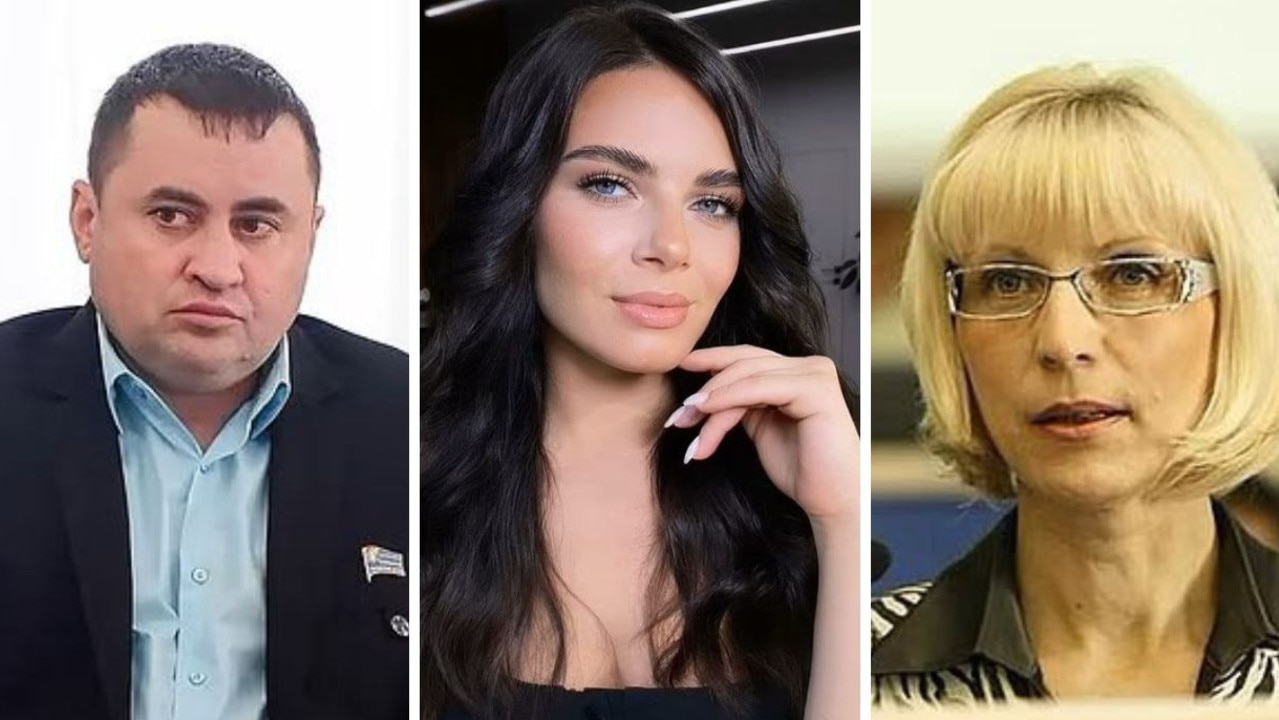Putin’s ‘dead friends’ list keeps growing
Two dozen of Putin’s ‘friends’ have died mysteriously since the war began, and while the rate is slowing, Vladimir Yegorov’s death suggests a sinister change.

ANALYSIS
This year, just one “friend” of Russia’s dictatorial president died mysteriously over Christmas. Last year, there were four.
Vladimir Yegorov, a representative of Russia’s government for the picturesque Asian city of Tobolsk, was found dead on a residential patio on Thursday.
But Russian media cannot agree on the cause of death.
Online news service Baza reports the 46-year-old member of Putin’s United Russia Party fell from a third-floor window. Local Tobolsk news outlet 72.ru quotes witnesses who observed the event. But another source insisted Yegorov had suffered “heart problems”.
The tightly controlled state news service TASS stated: “A body was discovered, the fact of death was confirmed, investigators are establishing all the circumstances … (there are no) external signs of a criminal death.”
Yegorov, a lawyer and successful businessman whose fortune was founded on an enormous holiday resort, avoided conviction for a corruption scandal in 2015. He was married with two daughters.

And he’s not the only high-profile Russian to fall from a window this year.
The glamorous vice president of the Russian Loko-Bank reportedly fell from her 11th-floor Moscow penthouse in June. Kristina Baikova, 28, died instantly.
In February, senior Russian defence finance official Marina Yankina, 58, died after a 50-metre fall from the 16th floor of a skyscraper in St Petersburg.
Decking the halls with dead bodies
The autopsy reports follow a standard format.
Died suddenly. Fell out of a window. Fell down stairs. Poisoned.
But, in August, President Putin abandoned his playbook by killing outspoken critic and failed mutineer Yevgeny Prigozhin, along with several of his colleagues, when his plane inexplicably fell from the sky north of Moscow.
This high-profile elimination prompted some Russia analysts to speculate Putin may be switching his favour from ultranationalist extremists towards “an apolitical but obedient bureaucracy”.

This year’s sole Christmas fatality stands as a case in point.
Last year, four senior Russians died suddenly during the festive season. That brought the total death toll among Putin’s oligarchs since the war began to some two dozen.
Alexander Buzakov, the director-general of Russia’s Admiralty Shipyards, met an “untimely” – but unexplained – death on Christmas Eve.
Sausage tycoon and member of parliament Pavel Antov fell from a hotel window in India on Christmas Day. His best friend had died of a “stroke” at the same hotel two days earlier.
And a director general of Russia’s space program, Vladimir Nesterov, also died of unknown causes during the 2022 festive season.
But Putin’s problems now extend far beyond his inner circle.
Family and friends of Russian troops are demanding their loved ones be returned home. And their protests are slipping through the cracks of the Kremlin’s censors and secret police. So Putin’s having to find new ways to silence them.
Killing friends and converting enemies
In November, a Putin appointee to the Russian Supreme Court ruled that being a part of the LGBTQ+ community was “extremist”. And all related behaviour would be “banned” in the new year.
President Putin ramped up his push for such punitive legislation after his “three-day” invasion of Ukraine failed early in 2022. By publicly proclaiming “family values” as being the motivation for oppression, he’s also won support among US Republican quarters and opened a wedge against support for Kyiv.
Now Putin has decreed 2024 as the “year of the family”.
“Traditional values have become a fixture in far-right movements around the world, some of which see Russia as a model of the future they desire,” says Northeastern University assistant professor of anthropology Sarah Riccardi-Swartz.
Putin’s propagandists are seizing on US Christian Nationalist fears. It regularly calls its invasion of Ukraine a “holy crusade” and the “starting point” of a global war against “Satanism”.
“Many right-wing American Christians who believe their country has lost its traditional religious heritage and is headed toward Marxism see the West as the new “red scare”,” Riccardi-Swartz writes in The Conversation. “For some who criticise the West as “woke,” contemporary Russia is a better social model and an arbiter of traditional morality … with authoritarian politics at the helm.”

Why Putin scents victory
“Shadow” oil tankers. Covert deals with US and European companies. Overt weapons trade with North Korea. Friendly backing from Beijing. “Spoiling” in Europe and the US from sympathetic far-right supporters.
Putin’s Russia is proving far more resilient to global sanctions than expected.
Now there’s a growing sense of “triumphalism” inside the Kremlin.
“The war in Ukraine may be deadlocked for now, but Putin thinks it’s going Moscow’s way,” former diplomat Ian Hill writes for Australia’s Lowy Institute. “The striking unity and resolve that characterised the strong Western response to Russia’s invasion in February 2022 has frayed, jeopardising vital flows of both military and budgetary assistance for Ukraine.”
After its February 2022 “Blitzkrieg” failed, Putin’s army mobilised a further 300,000 troops and reactivated scores of old tanks and artillery – some from museums – to maintain pressure on Ukraine’s much smaller military.
But it’s not yet achieved any significant military breakthrough beyond blunting Ukrainian attempts to counter-attack.
“Why is the Kremlin suddenly so bullish about the future prospects of the invasion?” asks Atlantic Council analyst Peter Dickinson. “Putin is openly preparing his country for an extended confrontation with the Western world, and has shifted the Russian economy to a war footing. This long-term approach appears to be working. Many in Russia are now convinced the West is preparing to abandon Ukraine and are openly relishing the prospect of what would be a historic victory.”
Jamie Seidel is a freelance writer | @JamieSeidel






